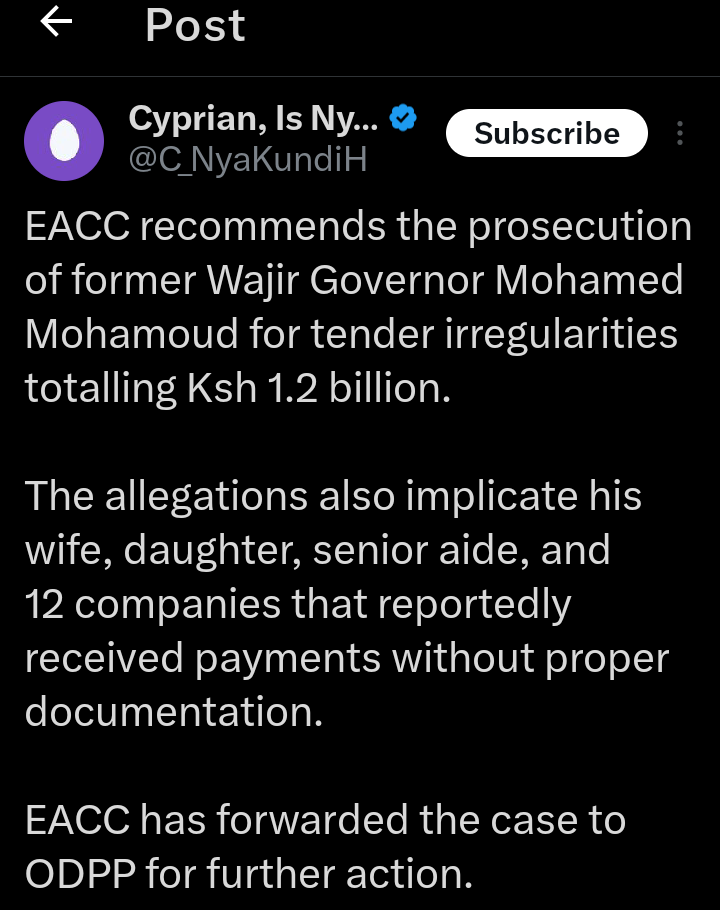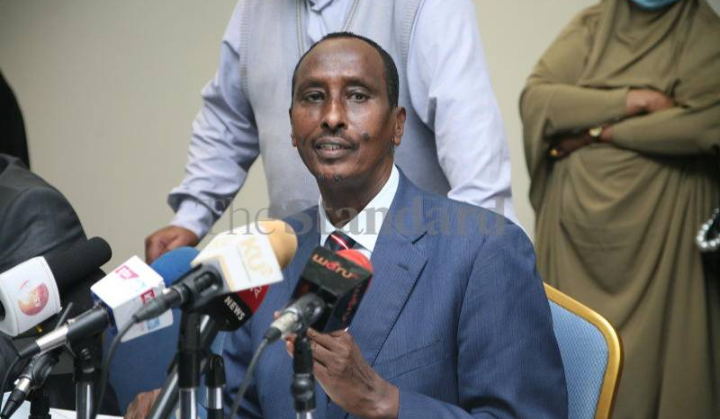The Ethics and Anti-Corruption Commission (EACC) has recommended the prosecution of former Wajir Governor Mohamed Mohamoud over alleged tender irregularities amounting to Ksh 1.2 billion.
The investigation, which involved raids on multiple properties, implicated the former governor, his wife, daughter, a senior aide, and 12 companies alleged to have received payments without proper documentation.
These developments have reignited concerns about corruption in devolved governments and the misuse of public resources.
The allegations primarily revolve around irregular procurement practices during Governor Mohamoud’s tenure.
According to reports, the funds in question were funneled through dubious contracts where competitive bidding procedures were ignored.
The former governor’s administration allegedly favored specific companies connected to his associates.
EACC investigations revealed that many of these payments lacked supporting documents, violating public finance regulations.

Furthermore, some individuals involved allegedly attempted to destroy evidence, obstructing the investigative process.
These issues are not new for the former governor.
A Senate probe revealed extensive lapses in his administration, including direct procurement and unaccounted-for expenditures during the COVID-19 pandemic.
For example, an audit of Ksh 308 million allocated for pandemic response showed only Ksh 141 million was properly accounted for, leaving a Ksh 167 million discrepancy.
Additionally, Wajir County reported paying health workers Ksh 36.8 million despite only receiving approval for Ksh 35 million.
These findings painted a picture of a leadership marked by negligence and deliberate misuse of funds.
The involvement of the former governor’s family members and close associates adds a troubling layer to the case.
His wife and daughter are accused of playing roles in facilitating questionable transactions, raising questions about nepotism and favoritism in managing public resources.
The implicated companies, 12 in total, are believed to have been proxies for funneling county funds into private accounts.
During raids conducted in Nairobi and Wajir, EACC officials recovered financial records, property ownership documents, and consultancy agreements.
These materials are expected to form the basis of prosecution against those involved.
The EACC has forwarded its findings to the Office of the Director of Public Prosecutions (ODPP) for further action.
If prosecuted, this case could serve as a pivotal moment in the fight against corruption in Kenya’s devolved units.
Public demand for accountability is growing, with many residents of Wajir feeling betrayed by leaders entrusted with their county’s resources.
This case underscores the urgent need for stricter oversight mechanisms in county governments to prevent such large-scale misuse of funds.
However, the country awaits to see whether the ODPP will move swiftly to bring the culprits to justice.
The residents of Wajir, and indeed all Kenyans, deserve better stewardship of public resources.





















Add Comment